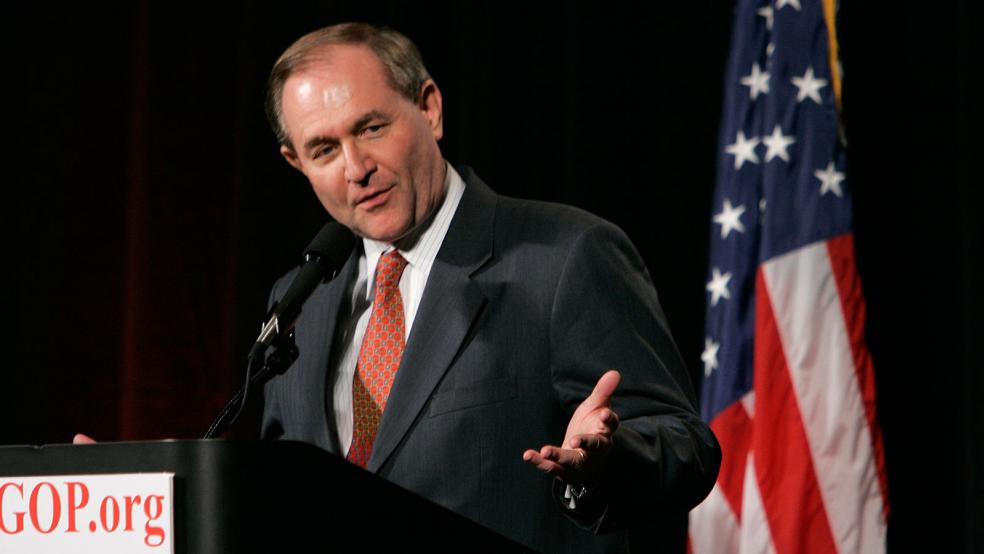Just when it seemed the field of GOP presidential candidates was already bursting at the seams with 16 major contenders, former Virginia governor James Gilmore III tossed his hat in the ring.
Gilmore, 65, is a hard-core conservative who served as chair of the Republican National Committee in 2001 and briefly flirted with a bid for the GOP presidential nomination back in 2008. After years out of office, he insists that his bonafides as a national security expert, former Army intelligence officer and one-time steward of Virginia’s economy justify his late entry into the 2016 Republican roller derby.
Related: Why the Six Candidates Left Out of the GOP Debate Might Be Winners After All
Earlier this month, he complained to the Richmond Times-Dispatch that he didn’t think that any of the other Republican candidates have been adequately speaking out on crucial economic concerns facing the country.
Gilmore’s successful gubernatorial campaign against Don Beyer in 1997 was called a “charisma free zone.”
In a field currently dominated by the bombastic and media savvy billionaire Donald Trump, Gilmore’s notoriously bland personality stands little chance of sparking voter or donor interest throughout the grueling early primary campaigning in Iowa, New Hampshire and South Carolina.
Related: Who Makes the Cut? The 10 Republicans Leading the Fox Debate Race
University of Virginia political scientist Larry Sabato famously derided Gilmore’s successful gubernatorial campaign against Don Beyer in 1997 as the “charisma free zone.” Gilmore – a lawyer and one-time state Attorney General -- rode to victory that year on a pledge to eliminate Virginia’s personal property tax on cars and trucks.
With virtually no standing in the national political polls for now, Gilmore has no chance of appearing in next Thursday night’s GOP presidential debate in Cleveland that will be broadcast by Fox News. Nor is he likely to appear on a late-afternoon consolation event for the half dozen or so candidates who don’t make the cut.
Once in office, Gilmore pushed a dozen tax cuts through a Democratic-controlled General Assembly, including elimination of the hated “car tax.” The tax cuts were a highlight of his single term in office, although Virginia’s economy later began to sag and the governor and legislators were forced to make cuts in the budget to accommodate declining tax revenues.
Gilmore is very unlikely to ever leave the kids' table and make it to the adult debate.
To his credit, Gilmore also enacted a series of tough academic and testing standards and other educational reforms that produced higher student test scores and more accountability on the part of teachers and administrators.
Gilmore was governor during the Sept. 11, 2001 terrorist attacks on New York and the Pentagon in Virginia, and he headed a commission that advised both the Clinton and Bush administrations on domestic threats of terrorism involving weapons of mass destruction.
Related: Republican Gilmore files paperwork to enter presidential race
“On paper, Gilmore has more to offer than some other candidates--state attorney general, tax-cutting governor, RNC chair for a year, governor during 9/11 when the Pentagon was attacked, a military and intelligence-gathering background,” Sabato said on Thursday. “Gilmore's views on fiscal, foreign policy, and social issues are conservative and about where most GOP voters are.”
“But Gilmore is now almost completely unknown,” Sabato added. “He has no campaign cash to speak of, little staffing, no superstructure. Some polls have had him at 0.0 percent. What can I say? Very unlikely to ever leave the kids' table and make it to the adult debate. Certainly not a contender for the nomination.”





